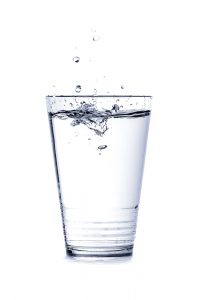There’s a lot of things out there besides Covid-19 that can harm you, and your water is potentially one of them. If you get your water from an unregulated well in one of many counties in Colorado, or actually any state in the U.S., you need to get that water tested from a certified lab.
Arsenic is just one of the heavy metals that can be present in your water source. A heavy metal refers to any metallic chemical element that has a relatively high density and is toxic or poisonous at low concentrations. Examples of heavy metals include mercury (Hg), cadmium (Cd), arsenic (As), chromium (Cr), thallium (Tl), and lead (Pb).Lead contamination seems to get a lot of media attention, but arsenic in water and food can put you six feet under just as well. Exposure to arsenic can cause cancer, skin lesions, diabetes, birth defects and a whole lot more.
 It’s not like this is new news. In a document from the Colorado Department of Public Health and Environment, arsenic was reported 17 years ago as a potential drinking water contaminant in the following Colorado counties: Jefferson, Boulder, Alamosa, Conejos, Costilla, El Paso, Gunnison, Logan, Phillips, Routt, San Miguel, Sedgwick, Washington and Yuma.[1] In November 2019, the media reported thousands of people in Delta County are being exposed to arsenic.[2] There’s no evidence that the situation has changed for any of these counties.
It’s not like this is new news. In a document from the Colorado Department of Public Health and Environment, arsenic was reported 17 years ago as a potential drinking water contaminant in the following Colorado counties: Jefferson, Boulder, Alamosa, Conejos, Costilla, El Paso, Gunnison, Logan, Phillips, Routt, San Miguel, Sedgwick, Washington and Yuma.[1] In November 2019, the media reported thousands of people in Delta County are being exposed to arsenic.[2] There’s no evidence that the situation has changed for any of these counties.
Arsenic is naturally occurring in some geologic environments in Colorado due to weathering and erosion of bedrock and soil, including highly mineralized areas that are mined for metal ores.[3] It is also present in the environment due to a number of human activities including those involving mining, military operations and firing ranges, pharmaceuticals, smelting, manufacturing, taxidermy, pesticides, landfills with hazardous waste like batteries, and more.
Again, none of this has gone away. We still have erosion of bedrock and soil (and we continue to move soil and rock around to accommodate population growth), and we still have all the human activities that cause arsenic and other heavy metal exposures; we see more every day.
If you are on municipal water, you are pretty safe. But groundwater from wells supplies on average about 18% of Colorado’s water. And, certain parts of the state rely more heavily on groundwater: for example, nearly a quarter of the water used in Weld County comes from groundwater.[4]
Get your well water tested. Arsenic and other heavy metals that can harm your family can be removed. Better to be safe, than sick.
IX Water offers new technology for the safest, and most effective and efficient removal of arsenic, lead, and other heavy metals.
[1] https://www.denverhealth.org/-/media/files/pehsu/arsenic-and-demostic-well-water-colorado-public-health.pdf?la=en&hash=F94C9BE10C7409F1B6FC5467AD0AC3218B6F609C
[2] https://www.9news.com/article/news/local/next/study-some-well-water-in-colorado-has-high-levels-of-arsenic/73-134d9f38-750d-4d91-a5f8-4c2e503ddbce
[3] Paper – Arsenic Concentrations in Soil. Colorado Department of Health and Environment – risk management guidance for evaluating
[4] http://pacelab.colorado.edu/WellWaterStudy_FAQs.pdf

0 Comments